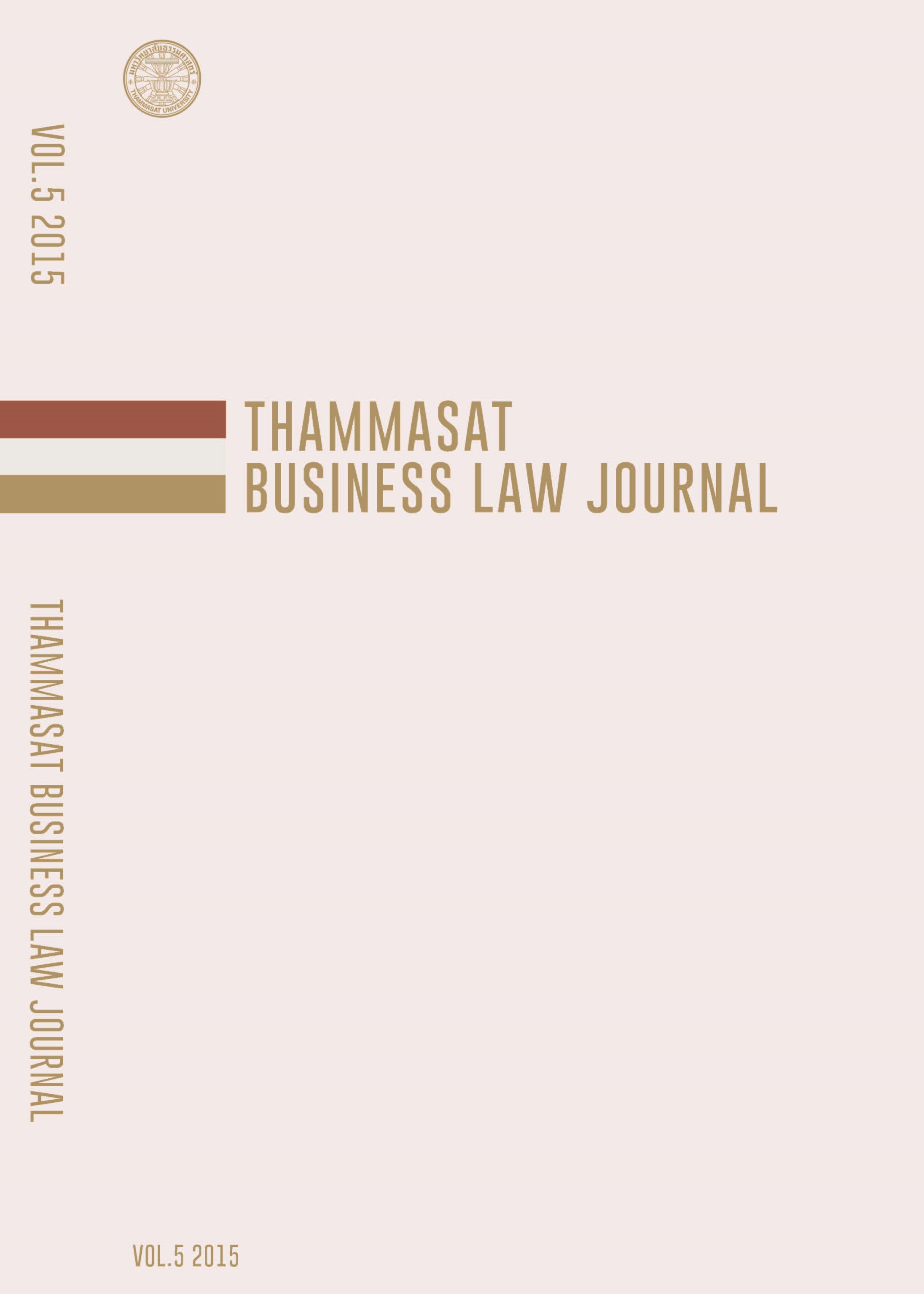LEGAL PROBLEMS ON COMMERCIAL SURROGACY IN THAILAND UNDER THE PROTECTION OF CHILDREN BORN FROM ASSISTED REPRODUCTIVE TECHNOLOGIES ACT, B.E. 2558
Main Article Content
Abstract
Thailand is one of the destination countries for Assisted Reproductive Technologies process and surrogacy arrangements. Today, Childless couples are increasingly looking for Thailand and elsewhere to allow them to have children through Assisted Reproductive technologies available where there are no laws prohibiting this and it is also affordable. The demand for surrogacy and other artificial conception procedures is rapidly increasing throughout the world. Thailand’s reputation as a place where surrogate mothers can be found is growing. As a result of Surrogate Thai mothers being well regarded for their healthy lifestyle and, combined with Thailand’s first class hospital services, surrogacy has become popular among both Thais and foreigners.
The controversy of concerning surrogacy occurred in August 2014. At that time, in the baby Gammy case, an Australian utilized a Thai surrogate mother through surrogacy arrangement in Thailand and then abandoned one of twins, called Gammy who was born severely handicapped (Down Syndrome). The couple took only the child’s twin sister, called Pipah, back to Australia. The problem is who should be responsibility for the baby Gammy. The law in Thailand at that time could not be applied to this situation properly. However, commercial surrogacy was officially banned by the Medical Council of Thailand. Subsequently, shortly afterwards, it was discovered that a Japanese man was the father of a large number of children utilizing surrogate mothers through surrogacy in Thailand. The whole issue was sensitive to the society. The assumption of human trafficking via commercial surrogacy is of great important issue to be investigated. Later, a specialist in Assisted Reproductive technologies had been charged with a number of serious offences. The thing that should be considered in this case is properly legal regulation to solve this problem. That commercial surrogacy should be banned or not is considered upon the public order and morality. The expression of “commercial surrogacy” should be profoundly defined
In November 2014, Thailand’s National Legislative Assembly approved the draft surrogacy law. In February 2015, the Thai Parliament passed the legislation of prohibiting commercial surrogacy, called Protection of Children Born from Assisted Reproductive Technologies Act, B.E.2558. However, the provision of the Act concerned about commercial surrogacy is not clear enough for the foreigners to search for surrogacy arrangements through Assisted Reproductive Technologies in Thailand where is very famous in these kinds of treatment of infertility.
This thesis mainly studies commercial surrogacy in Thailand through Protection of Children Born from Assisted Reproductive Technologies Act B.E.2558 according to the theories and conceptual framework for Assisted Reproductive Technologies, analyzes this Act compared to the international surrogacy arrangement in some countries with legislation permitting commercial surrogacy and no legislation permitting commercial surrogacy, and provides some suggestions of this Act relating to prohibiting commercial surrogacy for foreigners who have infertility to search for Thailand where is famous for Assisted Reproductive Technologies in terms of high success rate and least complications.
Article Details
References
Atiyah, P. S. An Introduction To the Law Contract. 5thed. Oxford: Clarendon Press, 1995.
Beal Hugh, Harkamp Arthur, Kotz Hein and Talllon Denis. Cases, Material and text on contrat law: Hart Publishing, 2002
Beatson J. & Friendman D. Good Faith and Fault in Contract Law. Clarendon press:Oxford, 1997.
Hoggett, B, D Pearl, E Cooke, & P Bates. The family Law and Society cases and Materials. 4th ed. London: Butterworths, Edinburgh, Dublin, 1996.
A Van Niekerk, L Van Zyl. The ethics of surrogacy: women’s reproductive labour.J Med Ethics 1995;21:345-349 doi:10.1136/jme.21.6.345
Barbara Stark, “Transnational surrogacy and international human rights law,” 18ILSA J. Int’l & comp. L. (2011-2012)
Boon Chin Heng, Proposed ethical guidelines and legislative framework for permitting gestational surrogacy in Singapore Reproductive biomedicine online, 2007 - Elsevier
Elizabeth S. Scott, “Surrogacy and the politics of commodification, Law and Contemporary Problems,” Vol. 72, No. 3, Show Me the Money: Making Markets in Forbidden Exchange (Summer 2009), pp. 109-146, Published by: Duke University School of Law, Stable URL: http://www.jstor.org/stable/40647246


